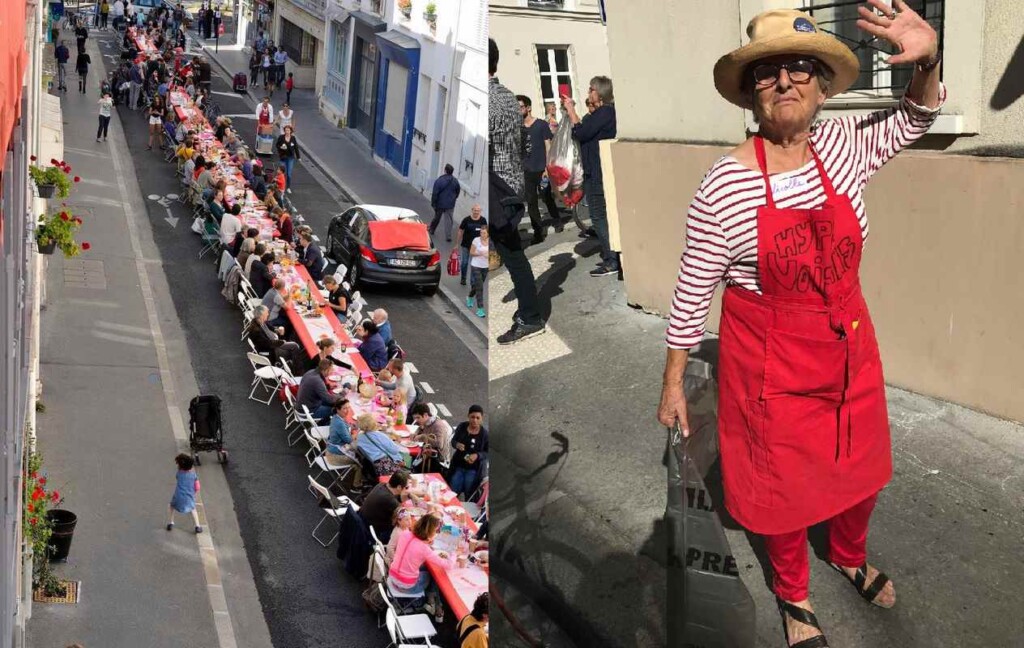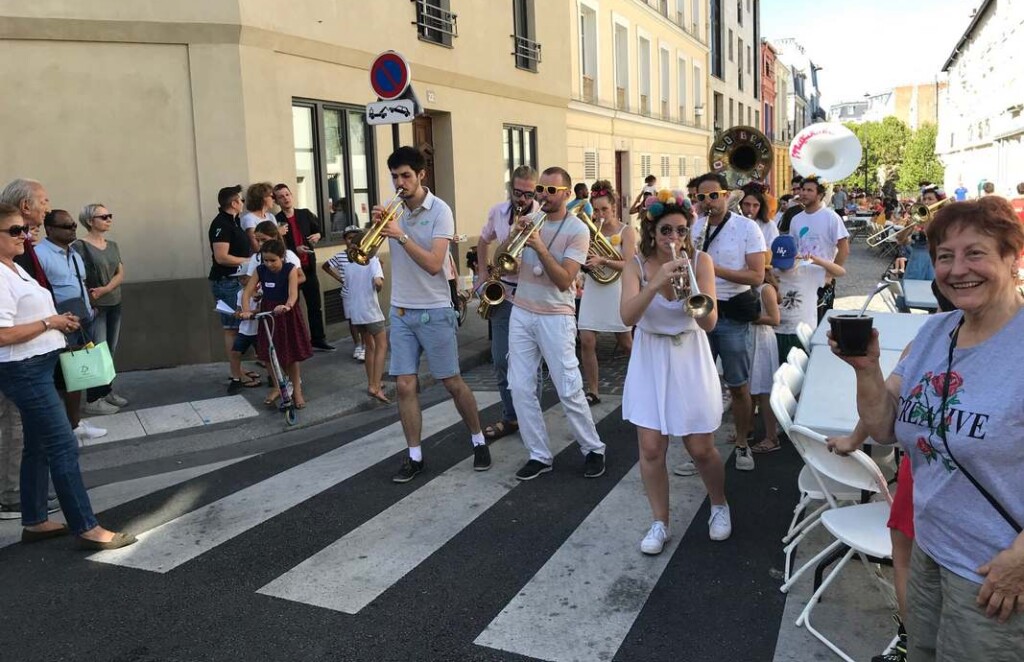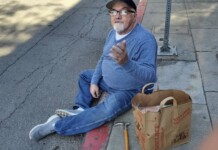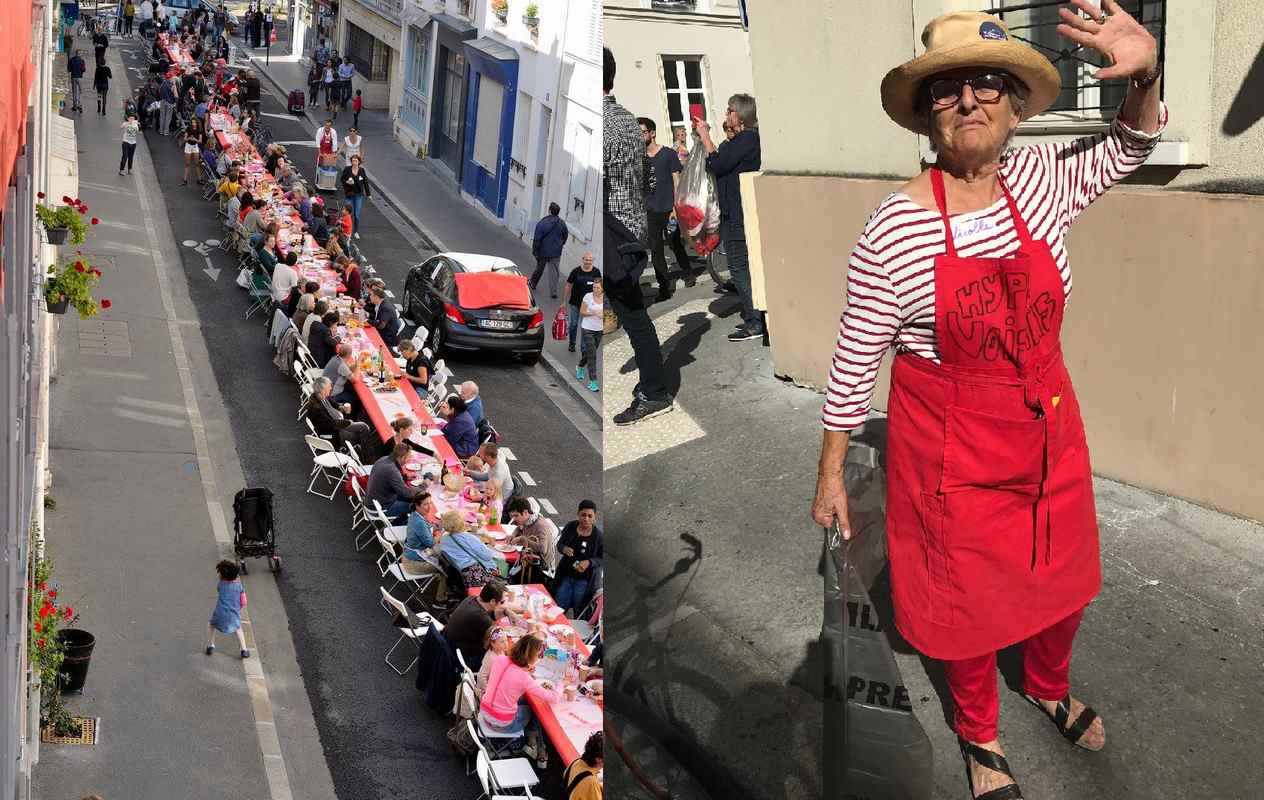
In the south of Paris’ city center, the 14th arrondissement is conducting a neighborhood-wide experiment on deliberate living by consciously choosing to be good neighbors.
It’s an effort aimed at combatting the paradox of the big city: millions of people crammed together, many of whom suffer from social isolation as their millions of neighbors take on endless shades of anonymity.
This is true of many cities in the world, but unique to Paris is the brusqueness that develops from a city of perpetual hustle and hordes of tourists.
Unwilling to let the City of Light, their City of Love, dim under this curtain of curtness, the self-proclaimed “Republic of Good Neighbors” (Republique des Hyper Voisins) is on a mission to transform their neck of the woods into a vision of Paris from the past, full of ‘bonjours,’ of greenery and promenading, and of taking every opportunity to chat with passersby.
In the first effort of the collaboration, a 215-meter-long table (715 feet) was set out on the Rue de L’Aude, where the entire 14th arrondissement was invited to a special lunch event entitled “Bonjour.”
The Guardian newspaper, reporting from the event, called it “distinctly un-Parisian,” and local cafe owner Benjamin Zhong said, “I’d never seen anything like it before. It felt like the street belonged to me, to all of us.”
“The stereotype of a Parisian is brusque and unfriendly,” added Patrick Bernard, the former journalist and local resident who launched the project. “But city living doesn’t have to be unpleasant and anonymous. We want to create the atmosphere of a village in an urban space.”
Since 2018, the Republic has been the site of hundreds of small events celebrating conviviality, including brunches, aperitifs, cultural outings, bake-a-thons, children’s activities, and group exercise meets. The airwaves are filled with communications from dozens of WhatsApp groups, for people trading and selling handmade goods, people repairing electronics or mechanical equipment, or sharing referrals to various professional services.
Many residents say the deliberate shift to good neighborliness has changed their lives. This includes not only Frenchmen, but immigrants to the area as well, who feel they’re living the Paris they always imagined.

A French Revolution
Once the good neighbor republic realized it could organize the citizenry in camaraderie, it began doing so for other causes, including improving local access to healthcare services and electric transportation.
Mr. Bernard has petitioned for, and received, several grants from city hall to pursue civic improvements like electric bike rentals and charging stations. The Hyper Voisins actually opened a medical clinic, staffed by ten people, that targets its facilities and services around the needs of people in the 14th arrondissement.
The Republique has lobbied city hall to levy a tax on businesses deemed undesirable by those in the neighborhood, such as banks that no one uses, or delivery hubs.
It’s also hired local green entrepreneurs to design a variety of collection points for organic waste which is then turned into compost for the neighborhood trees and flower boxes.
Its most recent civic engagement project was when the Republique turned its attention to the Place des Droits L’Enfant, a plaza that had become a largely lifeless road junction. By working together, the neighbors pedestrianized it, cleaned up litter and broken pavement, planted a variety of garden beds along the roads and plaza, and inaugurated the new space with a big party of music and board games.
While there, the Guardian met with Patrick Touzeau, who moved to the area with his three kids in 2018. Touzeau believes the concept should be implemented everywhere on Earth.
SHARE This Vision Of Gay Paris With Your Urbanite Friends…




















